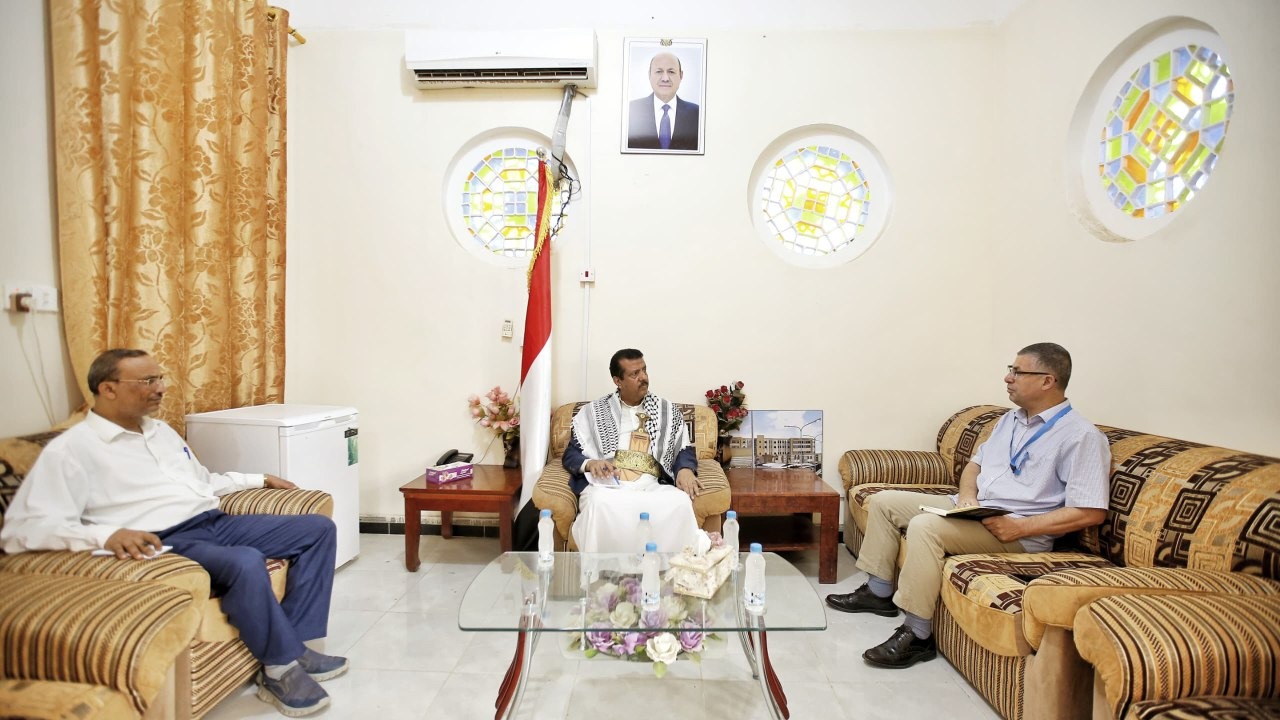


Barran Press
Local authorities in Marib Governorate (northeastern Yemen) met with the UN Refugee Agency (UNHCR) on Tuesday, August 6, 2024, to discuss the inclusion of the humanitarian response plan for the governorate within the UN's overall Yemen response plan for the coming year, which will begin its preparation in September.
The meeting between Marib Deputy Governor, Dr. Abdur-Rabuh Muftah, and the UNHCR's Marib office director, Mamoun Abu Araqoub, focused on the current humanitarian situation in the governorate, according to the official Marib Governorate website.
The meeting highlighted the UNHCR's role as the lead agency for the shelter and accommodation sub-cluster in Marib, advocating for increased support for the cluster in the governorate, which hosts over 62% of Yemen's displaced population.
Muftah emphasized the growing humanitarian needs of displaced persons and host communities in Marib due to declining international organization interventions, ongoing economic and humanitarian deterioration, continued escalation by Houthi militias, and a persistent wave of displacement into the governorate.
He stressed that these ongoing changes and significant funding shortfalls are exacerbating the burden on local authorities and their executive offices in responding to the increasing basic needs of displaced persons and host communities, exceeding their capacity and resources.
Abu Araqoub, in turn, presented a brief overview of the UNHCR's humanitarian interventions in Marib during the past period, outlining the agency's upcoming projects in the governorate.
He explained that the UNHCR will implement three shelter-related projects in the coming months, including the distribution of 1,500 temporary shelters (caravans), the rehabilitation of 100 war-damaged homes in Hareeb district, and 50 homes damaged by climate change in Al-Wadi district, in addition to assisting in the maintenance of 800 other homes in the governorate.
He also mentioned that the UNHCR has a protection intervention project that includes covering the costs of issuing identity cards for displaced persons unable to afford them and establishing a protection canopy in front of the women's section of the Civil Status Department to shield them from the sun's heat.